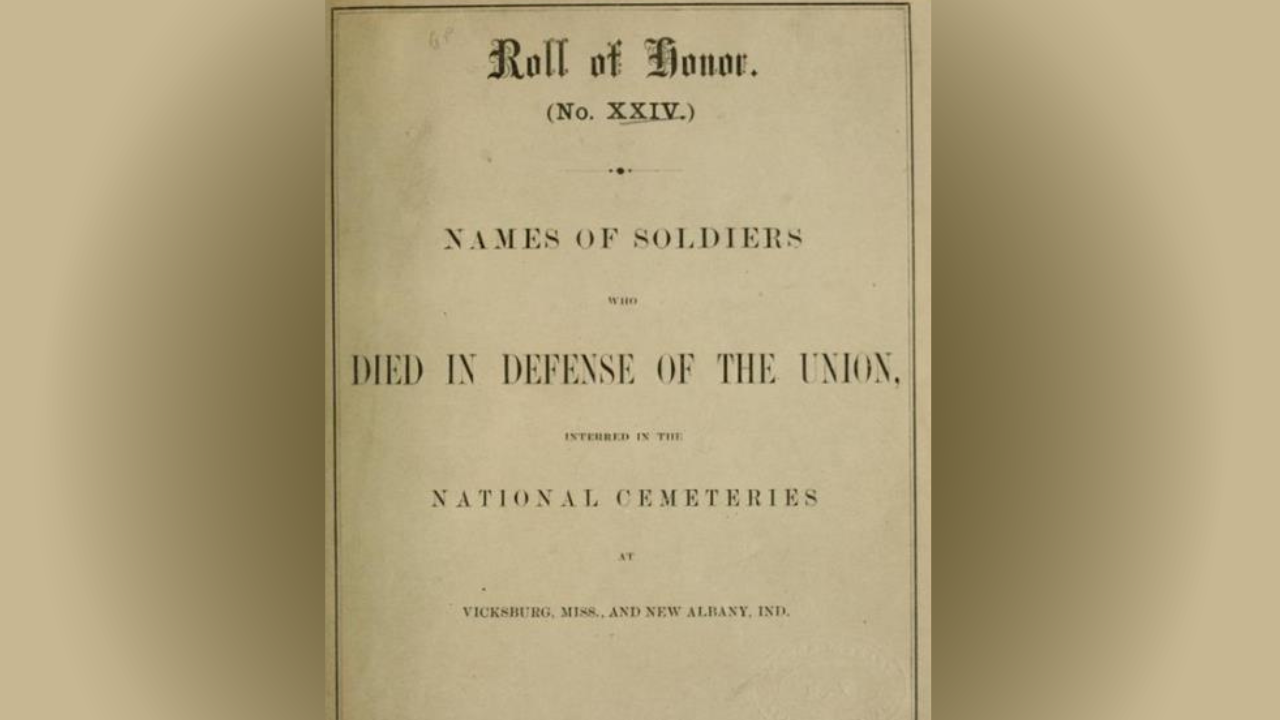
History of VA in 100 Objects
Object 86: The Roll of Honor
“The following pages are devoted to the memory of those heroes who have given up their lives upon the altar of their country, in defense of the American Union.”
So opened the preface to the first volume of the Roll of Honor, a compendium of over 300,000 Federal soldiers who died during the Civil War and were interred in national and other cemeteries. The genesis of this 27-volume collection published between 1865 and 1871 can be traced to Quartermaster General Montgomery C. Meigs and the department he oversaw for a remarkable 21 years from 1861 to 1882.
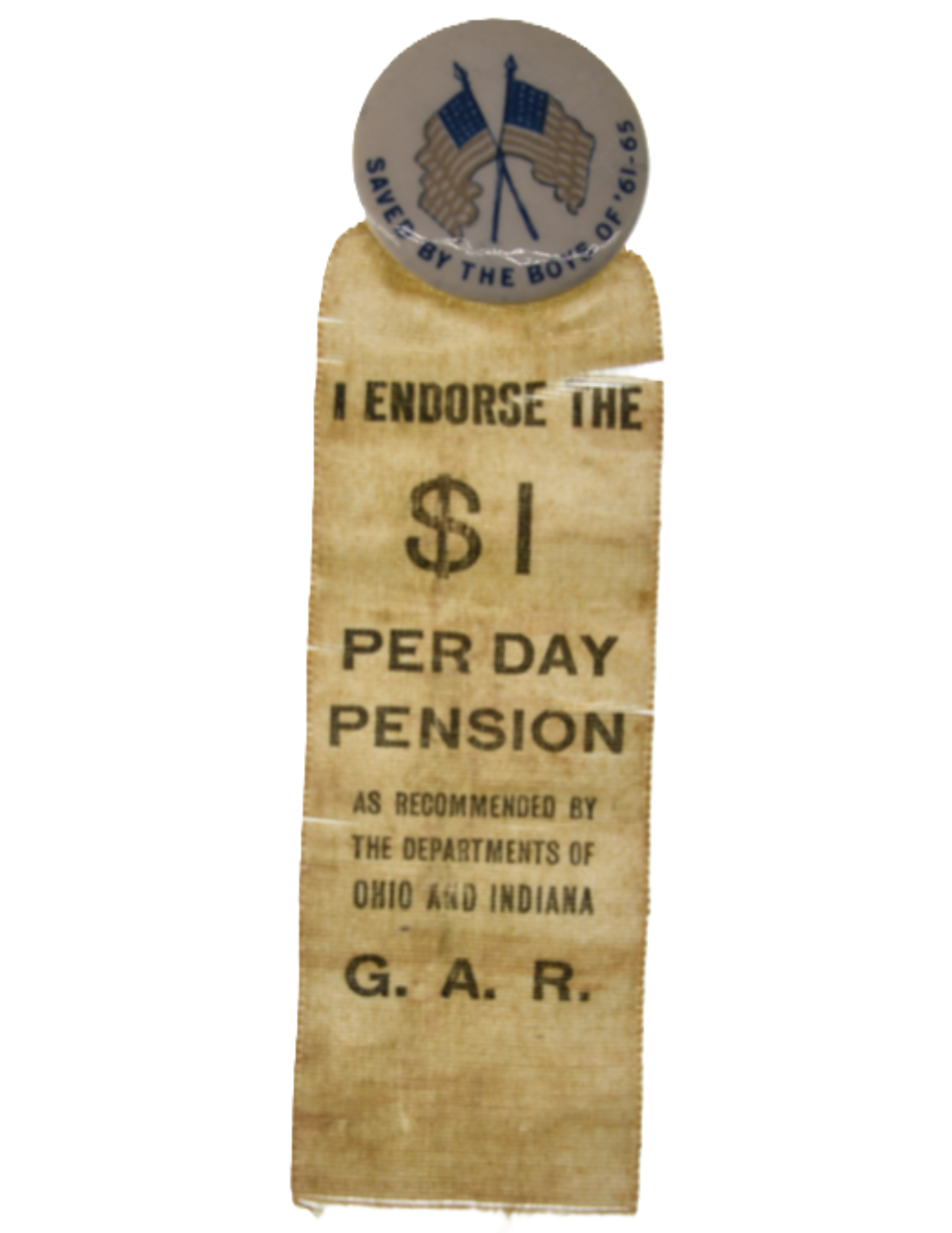
History of VA in 100 Objects
Object 85: Congressman Claypool’s “$1 Per Day Pension” Ribbon
Founded in 1866 as fraternal organization for Union Veterans, the Grand Army of the Republic (GAR) embraced a new mission in the 1880s: political activism. The GAR formed a pension committee in 1881 for the express purpose of lobbying Congress for more generous pension benefits.
An artifact from the political wrangling over pensions is now part of the permanent collection of the National VA History Center in Dayton, Ohio. The item is a small pension ribbon displaying the message: “I endorse the $1 per day pension as recommended by the Departments of Ohio and Indiana G.A.R.” The button attached to the ribbon features two American flags and the phrase “saved by the boys of ’61-65.” The back of the ribbon bears the signature of Horatio C. Claypool, a Democratic judge who ran for the seat in Ohio’s eleventh Congressional district in the 1910 mid-term elections.
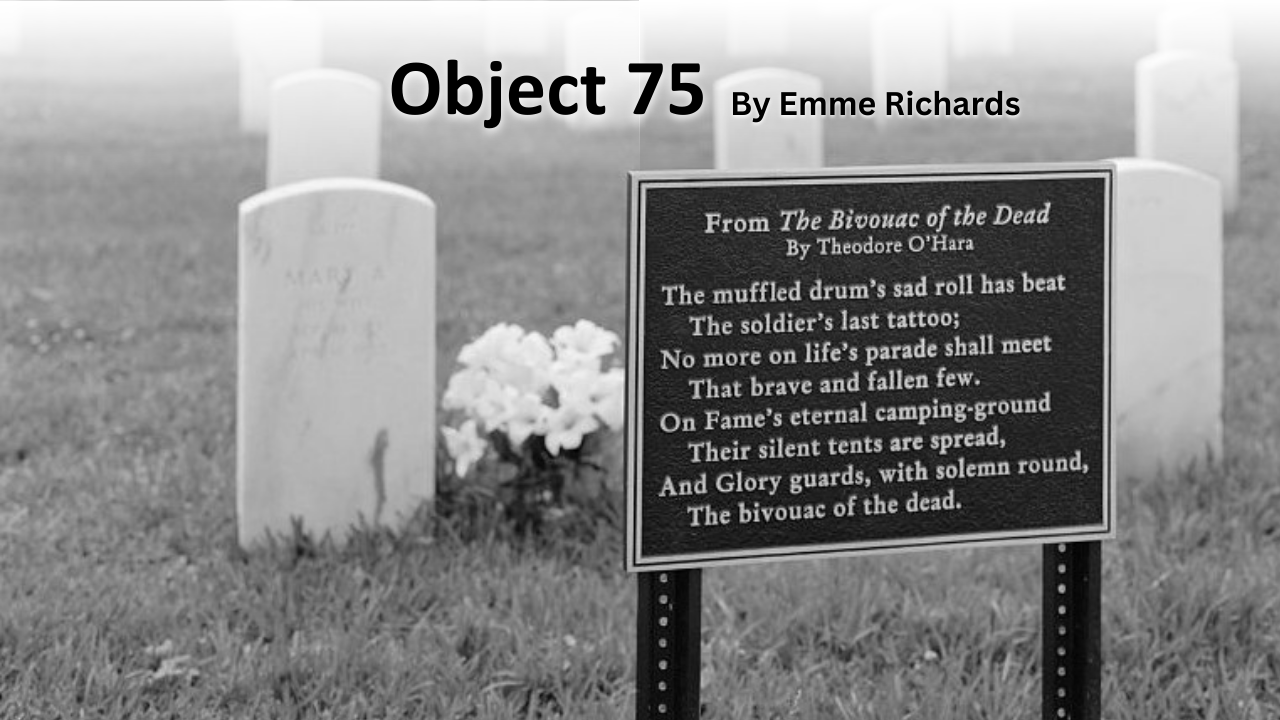
History of VA in 100 Objects
Object 75: “Bivouac of the Dead” Tablet
The mounted plaque stands in front of the headstones at Mobile National Cemetery in Alabama. The dark, cast-aluminum tablet draws a stark contrast to the sea of pearly marble beyond. Across its face in white lettering runs the sorrowful first stanza of Theodore O’Hara’ elegiac poem, “Bivouac of the Dead,” beginning with the verse “The muffled drum’s sad roll has beat / The Soldier’s last tattoo; / No more on life's parade shall meet / That brave and fallen few.” Tablets bearing passages from O’Hara’s poem can be found in dozens of VA national cemeteries across the country. Originally written to honor the Kentucky volunteers who died in the Mexican War (1846-48), the poem now serves as a literary memorial to all lives lost in service to the nation.
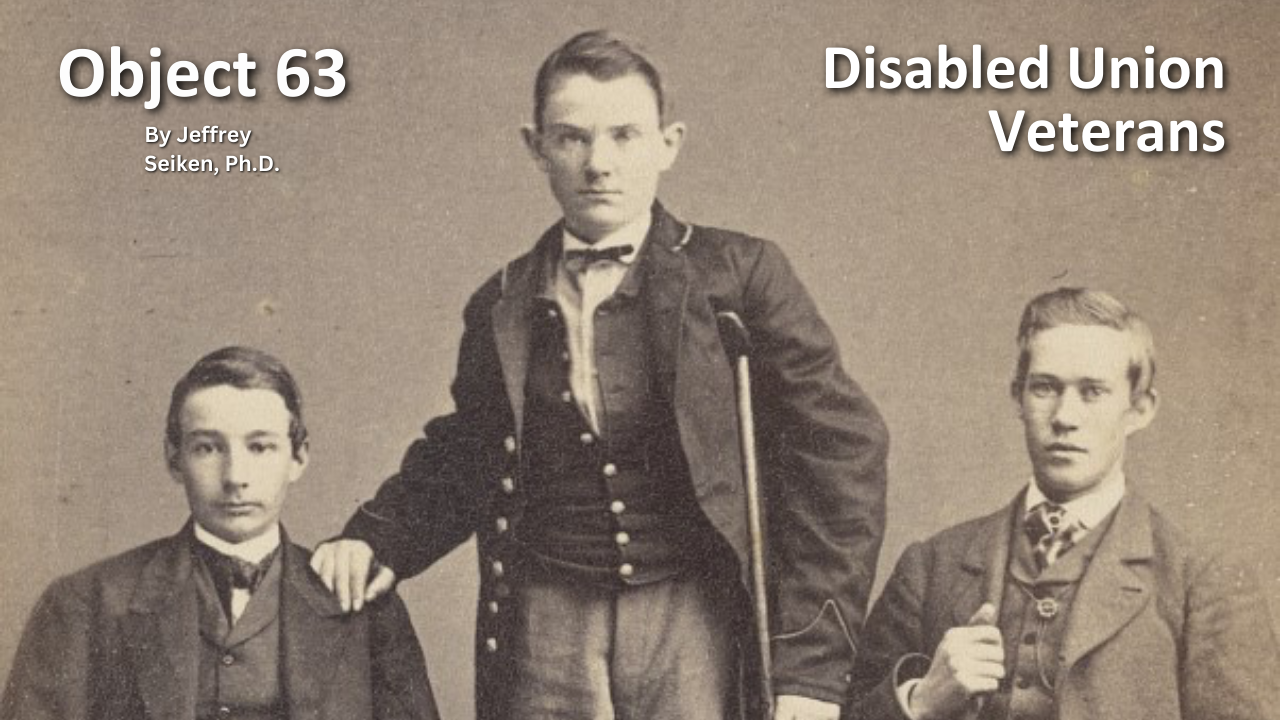
History of VA in 100 Objects
Object 63: Disabled Union Veterans
The North’s victory in the Civil War came at an enormous cost to the more than two million men who fought for the Union cause. Over 350,000 lost their lives due to battle or disease. Almost as many were wounded in action. According to Northern medical records, Union surgeons performed just under 30,000 amputations during the war. For these disabled Union Veterans, Congress made provisions to provide monetary compensation. In July 1861, lawmakers hastily passed a law for Union recruits making them eligible for the same pension allowances as soldiers in the Regular Army. Later in 1862, for the first time, a pension law explicitly granted benefits not just for men wounded in battle but also to those suffering from “disease contracted while in the service of the United States.”

History of VA in 100 Objects
Object 34: President Zachary Taylor’s Well-Traveled Remains
Three burial vaults, two funeral processions a thousand miles apart, and a daytrip to quash an assertion of foul play–the remains of Zachary Taylor, the only U.S. president laid to rest in a VA national cemetery, have taken an especially tortuous path to their resting place in Louisville, Kentucky.
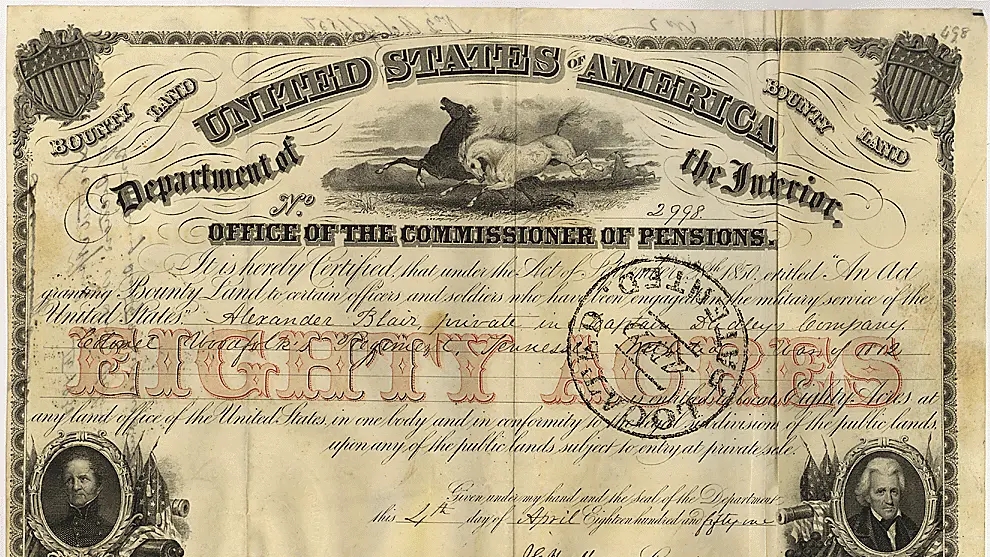
History of VA in 100 Objects
Object 2: Bounty Land Warrant
For a nation with limited financial resources, bounty land warrants were an appealing tool to encourage military enlistments. The promise of free 160 acres was the country's second benefit authorized for Veterans. However, the measure had devastating effect on the Indian nations that were dispossessed from the land.



